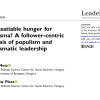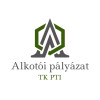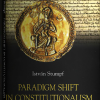Mid-term strategic plan of the Institute for Political Science (summary)
Leading the way in domestic political science: the Institute for Political Science has achieved outstanding publication performance in international journals between 2019 and 2022
Latest news

The Visegrad Fund approved the funding of the grant proposal 'Identifying News Slant in Crisis Communication Using Artificial Intelligence' of the Centre for Social Sciences.

Our Colleague had a discussion about his newest book, Political ethics in illiberal regimes. A realist interpretation

New paper by Godfred Bonnah Nkansah and Attila Bartha: Anti-democratic youth? The influence of youth cohort size and quality of democracy on young people’s support for democracy has been published in Contemporary Politics.

New paper by Rudolf Metz and Bendegúz Plesz "An insatiable hunger for charisma? A follower-centric analysis of populism and charismatic leadership" has been published in Leadership (D1).

New paper by Szilárd Tóth: Republicanism and the legitimacy of state border controls has been published in Ethics and Global Politics.

The Institute for Political Science, Centre for Social Sciences is launching a scholarship programme for BA, MA and PhD students to support scientific work in political science.

New paper by Ana Stojilovska et al.: As essential as bread: Fuelwood use as a cultural practice to cope with energy poverty in Europe has been published in Energy Research & Social Science.

István Stumpf's new book entitled "Paradigm Shift in Constitutionalism" has been published by Gondolat Kiadó.
.jpg&w=100&h=100&zc=1)
New paper by Zsófia Papp and G.B. Nkansah: The political component of COVID-19 vaccine choice. Results from a conjoint experiment has been published in Public Health.

As energy prices are increasing, the issue of energy poverty becomes even more relevant. How are European countries considering energy poverty in policies? Ana Stojilovska, Research Fellow at the Institute for Political Science led a group of researchers to explore whether, how, and why policy documents in Spain, France, Portugal, the UK, North Macedonia, and Slovenia link energy poverty to other related policy areas. The study was published in Energy Policy with an impact factor of 7.576. The paper has been prepared within the framework of the COST-funded ENGAGER network
Latest posts

In the fifth pti memo blog post, we report on a lecture by Boglárka Koller, in which she presented her project titled "Cultivating Our European Resilience and Evolution" (CORE) and its significance. Boglárka Koller is the Head of the Department of European Studies at the University of Public Service, Senior Research Fellow at the Centre for Economic and Regional Studies (KRTK), and Jean Monnet Chair. The lecture was hosted by the HUN-REN CSS Institute for Political Science on May 22, 2025, as part of its Speaker Series.

The latest post of the pti memo blog series offers insights from a thought-provoking lecture by Murat Somer, Professor of Political Science and International Relations at Özyeğin University Istanbul and Research Affiliate at the Democracy Institute of the Central European University. Titled "Quo Vadis in Turkey and Implications for Democracy in the World", the lecture explored current political developments in Turkey and their broader implications on combating democratic backsliding. The event took place on May 8, 2025, as part of the HUN-REN CSS Institute for Political Science’s Speaker Series.

The third blog post of the pti memo series summarises the lecture of Dr. Matthew Edward Bergman, Assistant Professor at Corvinus University of Budapest, titled “Ideological Conflict, Logrolling, and Policy Reform: An Analysis of Government Declarations in Western Europe.” The event was organised as part of the HUN-REN Institute for Political Science’s Speaker Series on April 10, 2025. This research, conducted jointly with Hanna Bäck (Lund University) and Wolfgang C. Müller (Universität Wien), investigates why some governments commit to more reform measures in their government declarations.

The second pti memo post summarises the lecture by Bálint Magyar and Bálint Madlovics, researchers at the CEU Democracy Institute, titled “The Russia-Ukraine War and Its Structural Consequences.” The event was organised as part of the HUN-REN Institute for Political Science’s Speaker Series on February 6, 2025.
Hungary is often portrayed as a problem case for European integration due to frequent clashes between Viktor Orbán’s government and the EU’s institutions. Yet, as András Bíró-Nagy and Gergő Medve-Bálint explain in their post on the LSE EUROPP blog, the country’s 20 years in the EU have also seen a relatively high level of compliance with EU policies and strong support for membership among the public.
.png&w=100&h=100&zc=1)
In the first pti memo post, we summarise Christian Baden’s (Hebrew University of Jerusalem) thought-provoking lecture titled “Propaganda as a Social Process.” The lecture was hosted by the HUN-REN Institute for Political Science as part of its Speaker Series event series on January 23, 2025.
















.jpg&w=100&h=100&zc=1)




.png&w=100&h=100&zc=1)